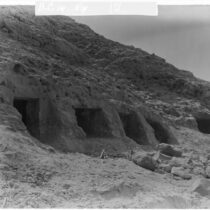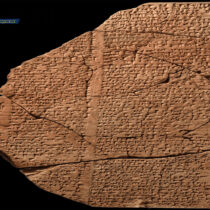Call for papers for an international conference remembering the 2500th anniversary of Xerxes’ campaign against Greece: “Xerxes against Hellas – An Iconic Conflict from Different Perspectives”.
It was almost exactly 2500 years ago that the army of the Persian Empire led by the Great King Xerxes departed for a major military campaign against mainland Greece. The course of events is well-known and the outcome had wide-reaching consequences in Antiquity and is still remembered as one of the most important events in the entire history of Europe. The anniversary is a good opportunity to reflect on some details and aspects of this iconic conflict and a conference (with a proceedings volume) presenting the recent trends and insights of historical research seems to be a unique opportunity to memorialize the events.
The conference is intended as a meeting point for all branches of classical studies which may contribute to the proper understanding of the history, historiography and ancient (or possibly later) reception of the decisive clash between the Persian Empire and some Greek city states.
Papers should focus on the ancient narratives / perceptions / representations / interpretations of the events. As there were many different communities concerned on both sides and in addition some Greek states tried to remain or effectively remained neutral, there was a wide range of possible attitudes towards the events both among contemporary participants or observers and among later writers, poets and researchers dealing with the entire campaign or with some parts of it. Topics therefore include but are not strictly restricted to the following ones:
-military history including tactical and topographic details and wider strategical questions;
-history of Graeco-Persian relations including political/diplomatic and cultural interactions (e.g. Greek soldiers, specialised workmen or exiled politicians in the Achaemenid Empire, mutual influences on art / fashion, monuments, institutions, flora, fauna etc.);
-history of individual Greek city states and of interrelations between them before, during and after the campaign (genesis and nature of the Greek alliances before and after the campaign, neutrality, political consequences, construction of Hellenic and other ethnic identities, etc.);
-the campaign from a Persian perspective (possible motivations, influence on Persian politics and diplomacy after 479 BC, relations between the Great Kings, their satraps and Greek poleis, especially treaties);
-victory monuments, epigraphic and literary celebrations of the victories;
-intermediary areas and peoples between mainland Greece and the Achaemenid Empire (Asia Minor and the Ionians, Macedonia)
-social, economic and cultural consequences of the war (e.g. booty, trade, fate of Greek statesmen, charges of medismos, popular concepts / mental maps concerning the enemy)
-historiography and reception of the campaign during the 5th and 4th centuries BC (the role and the handling of oriental subjects and traditions by Greek sources, especially Herodotus’ methods, aims, etc., ancient depictions and echos in myth and art).
We cordially invite all who are interested in delivering a paper to submit an abstract of maximum 200 words in English by 15th May 2021 to the following email address: [email protected].
Notification of acceptance will be sent by 9th September and we would like to ask the authors to prepare a detailed draft version of their papers by January 2022. These texts may be written in English, German, French and Italian and will be circulated among the participants as soon as they are submitted. They will hopefully result in a lively discussion during the conference which will take placebetween 28th February and 2nd March 2022 at Eötvös Loránd University, Budapest.
The organization is a joint effort by Peter Funke and Michael Jung (Münster), György Németh and András Patay-Horváth (Budapest) and Josef Wiesehöfer (Kiel), all of whom can be contacted with questions concerning the event.
In the present uncertain situation one can only hope for a real conference, but online participation will be possible to reach an audience as wide as possible and if the pandemic will continue to threaten the participants, the conference will be organized as an online event. Please circulate this call as widely as possible.





